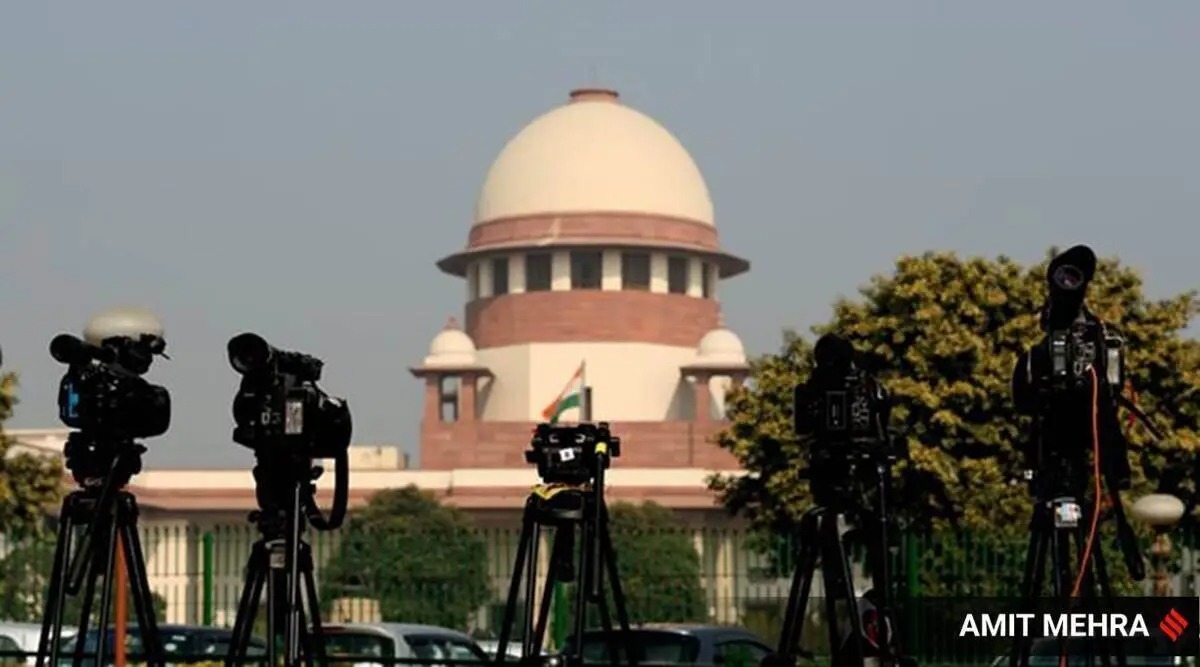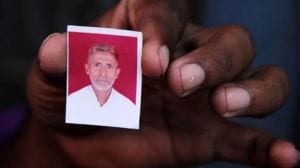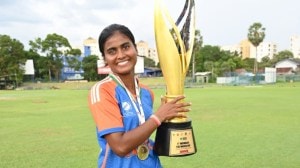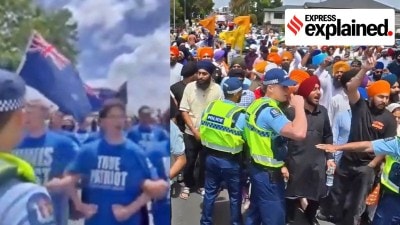Muslim appellants who have challenged the hjijab ban in Karnataka told the Supreme Court on Thursday that B R Ambedkar’s statement, extracted in the High Court’s judgment, is “deeply offensive” and “totally biased”, and it is not one “that should be repeated in India”.
“Ambedkar’s statement, although he was a pillar, is a deeply offensive statement. It is not a statement that should be repeated in India, great though he may have been. (It was a) totally biased statement,” senior advocate Colin Gonsalves, representing some of the appellants, told a bench of Justices Hemant Gupta and Sudhanshu Dhulia.

The comments came following an exchange with the bench about the HC judgment. Gonsalves said, “The judgment, read as a whole, is basically from the majoritarian perspective. It does not conform to the kind of constitutional independence that a judgment ought to have…. I will show you why I say this…startling paragraphs and hurtful paragraphs.”
Explaining why the HC order “cannot be relied upon at all”, Gonsalves referred to parts of the verdict linking the wearing of hijab to cultural practices of the past, women’s emancipation, and developing a scientific temperament. “So (according to HC), hijab is not a part of religion…. I wear the hijab, (but according to HC) I can’t be emancipated. I wear the hijab, I can’t have scientific temperament,” he submitted.
He said the HC order links wearing of the hijab with indiscipline and chaos, with social separateness and sectarianism of every kind.
Intervening, Justice Dhulia said, “This was said in reference to what Dr Ambedkar had said at some point of time. So it is not the judge saying it.”
He also said that the verdict “cannot be read like a statute, cherry-picking (here and there)…this was said in some different context altogether”. He then asked Gonsvalves to read the part where the verdict quotes Ambedkar’s statement, as extracted from his book ‘Pakistan or the Partition of India’.
Story continues below this ad
Referring to Ambedkar’s statement, the HC had said in its order, “What the chief architect of our Constitution observed more than half-a-century ago about the purdah practice equally applies to wearing of hijab. There is a lot of scope for the argument that insistence on wearing of purdah, veil, or headgear in any community may hinder the process of emancipation of women in general and Muslim women in particular.”
“So let’s not mix the entire thing,” Justice Dhulia told the senior counsel.
Gonsalves said the judgment is “not in keeping with constitutional values, and certainly not respectful of the rights of minority communities”. He asked why the hijab cannot be allowed if Sikhs can be allowed to wear turban. “The Constitution is a living organism…you change with the times…. What was previously not acceptable but today (has) to be accepted,” he added.
Senior advocate Kapil Sibal, also appearing for the appellants, said the matter should be referred to a Constitution Bench. Contending that “what you wear is an expression of the self”, Sibal said the question is, “if the right (to wear hijab) is available to me in a public place, is my fundamental right extinguished when I enter a school?”
Story continues below this ad
He said that wearing a hijab is also a part of one’s persona and cultural tradition and asked, “Do I have a right to carry on my cultural tradition, or does that stop at college gate?”
Sibal said Muslim girls have been wearing the apparel since the birth of Karnataka, “and there has been no untoward incident”. He said there was no compelling need for the government to come out with the order.
The senior counsel also said that information obtained under RTI by the ‘Deccan Herald’ newspaper showed that “in government-aided and constituent colleges of Mangalore University, Uduppi district, 145 out of 900 Muslim girl students who had enrolled in 2020-21 and 2021-22 had collected transfer certificates” following the ban om hijab.
Advocate Prashant Bhushan contended that unlike a private club, a public educational institution, particularly a government institution, cannot impose a dress code.
Story continues below this ad
Asked if he meant to say that government schools cannot have a uniform, Bhushan replied, “Yes, even if they can, they can’t restrict hijab.”
Advocate Shoeb Alam submitted that hijab is a matter of personal identity, and the extent to which an individual chooses to cover his or her body to feel secure from public gaze is a matter of personal choice. He argued that the right cannot be taken away by virtue of a person being in a public place.
Stating that there is no concept of barter of fundamental rights in India, he said the government order (G.O.) does that. “The G.O. says, I will give you education provided you surrender your right to privacy. Can it be done? The answer is an emphatic no.”
The court will hear the matter next on September 19.









